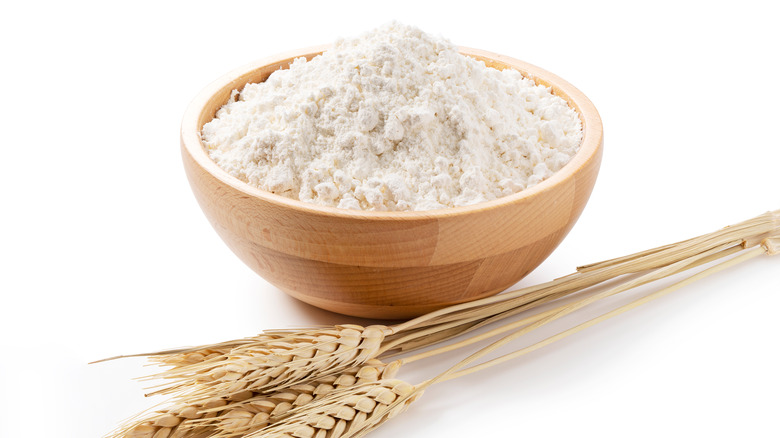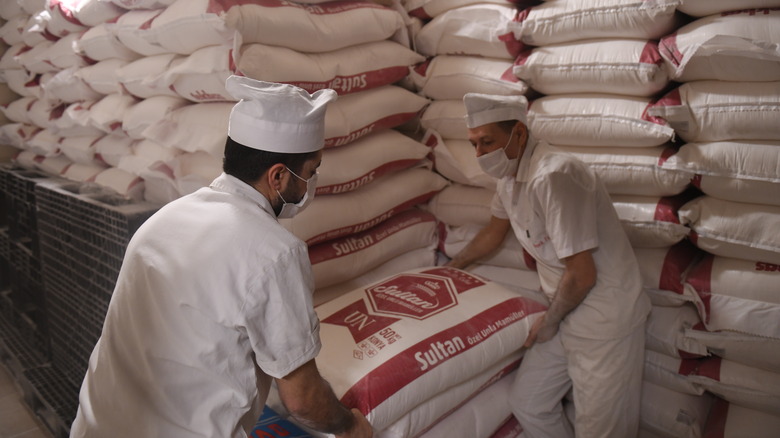Why India Is Restricting Its Flour Exports
It's no secret that the world has been experiencing a food crisis this year. Drought, climate change, disease, and international conflict have wreaked havoc on the food industry with shockingly high price tags to match. But we are all wanting good news, we might have to wait just a little longer. Now, just when it looked like the global wheat shortage could finally be coming to an end, India is restricting its flour exports.
According to Reuters, India's cabinet approved a motion to restrict wheat flour exports after restricting wheat exports earlier this year. In May, New Delhi already banned exports of wheat when a serious heatwave threatened the country's domestic supply and drove up prices. The ban, in turn, caused foreign demand for wheat flour to skyrocket and the Indian market stepped in. As a result, the country's flour exports shot up by 200% from April to July compared to 2021. At the same time, though, the country's domestic wheat flour prices also hit a record high this week: 24,500 rupees ($306.71) per metric ton. Here's what it means for global consumers.
The ban will lower global prices (and supply)
This new amendment to the previous restriction comes in an effort to bring down record high global prices. In an official statement, India's government explained, "There was a policy not to prohibit or put any restrictions on the export of wheat flour. Therefore, a partial modification of the policy was required ... to ensure food security and put a check on mounting prices," via The Guardian.
According to WorldAtlas, India is the second-biggest wheat-producing country in the world (after China), churning out roughly 103,000,000 metric tons annually. Therefore, many international consumers hoped that India would fill the gap in global wheat exports left by Russia and Ukraine after Russia's invasion in February 2022, states CNBC. Before the conflict, Russia was the largest wheat exporter in the world and Ukraine was the fifth-largest, collectively accounting for 21.6% of the total global supply, according to World's Top Exports. Since Russia began negotiations for creating a naval corridor to allow the export of Ukrainian grain in June, the food crisis may ease sometime in the near future, per Reuters. Still, as India steps away from the world wheat market once again, it looks like nations will have to keep looking elsewhere for their wheat importation needs.

